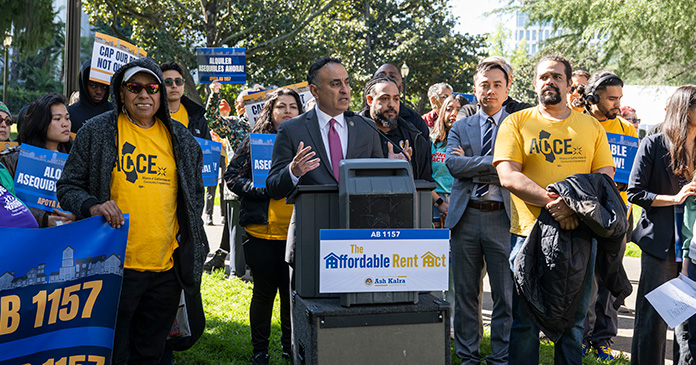Much has been made of the recent proposal by the President’s Advisory Panel on Federal Tax Reform to modify the current, virtually unlimited mortgage interest deductions available to homeowners. The NAHB, The National Association of Realtors, and the Mortgage Banker’s Association are all up in arms. If you read their web pages and press releases, you might conclude that the world as we know it is threated with imminent demise. The proposal “would drive down real estate values, have a devastating effect on the nation’s housing economy and negatively impact the nation’s economy.”
Let’s all slow down a bit. It’s not that I think this proposal is perfect. It is not. It does have elements, however, that deserve serious consideration.
Let’s consider some specifics of the panel’s proposal. It would replace the deduction of mortgage interest with a Home Credit for all taxpayers that is equal to 15 percent of the interest paid on a principal residence, regardless of the homeowner’s income. It would limit the amount of interest eligible for tax benefit to an amount no greater than the FHA limits in the region in which the home is located. It would lengthen the time a taxpayer must own a home before gains from the sale can be tax exempt and, finally, it would eliminate the deductibility of interest on home equity loans. These changes would be phased-in over a period of five years. (for more information, see www.taxreformpanel.gov)
Clearly, these proposals, if enacted, would reduce the attractiveness of being a debtor somewhat; they might even discourage some people from buying a home. The question is, however, how much of an impact would this really have?
While I will admit that these changes might seem fairly dramatic on their face, it’s interesting to consider why subsidies for homeownership are offered in the first place. Some will object to the use of phrase “subsidy,” because this is not a direct outlay of treasury funds and, of course, something like 70 percent of Americans own homes and therefore benefit from this mortgage interest deduction. Nobody likes to admit to being on the receiving end of a subsidy. Nonetheless, if it looks like a dog and barks like a dog, it’s likely a dog.
In fact, the America government spends far more every year on revenue lost to the mortgage interest deduction than it does to all forms of housing assistance for the nations poorer citizens. The federal government foregoes about $80 billion in annual revenue to the mortgage deduction versus a total 2005 HUD budget of something in the order of $30 billion.
So how do we justify giving a subsidy to someone making $1 million a year and not to someone making $45,000? That’s really what we do today. Let me explain. If you live in a house with a $1 million mortgage at 6 percent per year, you are able to deduct $60,000 per year from your taxable income before your taxes are calculated. In other words, the government is giving you a subsidy, assuming you are in the 35 percent tax bracket, equal to 35 percent of $60,000 or $21,000 per year. In fact, with such a deduction, the higher your income, the more this tax deduction is worth to you because of your higher tax bracket. (Real estate taxes are deductible too but we don’t need to go into that.)
On the other hand, if you earn $45,000 per year and choose to rent, or have to rent as is more likely the case, your housing subsidy from the government is much easier to calculate. It’s zero.
Essentially, we treat people making the same income differently depending on where they choose to live. We’ve done it for a long time in this country, and we justify it on the grounds that homeowners are somehow more “deserving” or better citizens than renters. It may be preposterous, but there is such a fundamental belief in this convention on both the political right and left that changing it is all but impossible. Besides, the President’s Panel didn’t propose eliminating the tax break for homeownership, just limiting it a bit more than it is today. (Today, interest of up to $1.1 million of mortgage debt is deductible.) Again, under the new proposal, every homeowner would receive a tax credit equal to 15 percent of the mortgage interest paid on loans equal to the average regional price of housing.
Some can justify giving benefits or subsidies to one family over another just because one chooses to own rather than rent because of the general belief that homeownership is far more desirable than renting. But it’s probably harder to justify giving someone who has a lot of money a bigger subsidy than someone with a smaller income just because they are deeper in debt.
Realtors argue that the panel’s recommended change would be too disruptive. They argue that the value of the nation’s residential property could decline 15 percent or more if “…the tax reform panel’s recommendation to convert the mortgage interest deduction to a tax credit takes effect.” My question is, if homeownership is so important a value to Americans, do we really need to fear that people will stop buying homes if we take away some of the financial incentive to do so?
I believe that the Advisory Panel’s recommendations have significant merit in recognizing that there is no need to provide housing subsidies to people with very large mortgages. However, I think that to the degree tax revenue is generated by this proposal, some of the money should be used to increase the amount of Section 8 voucher assistance available to low-income renters.
I also believe that the notion of using a tax credit in lieu of a deduction has merit in that it is more progressive; it helps those who need help more.
The panel may not fully recognize how much of a mortgage one needs to have in the high cost parts of the country to afford a first home. That part of their proposal needs work.
Also, giving HUD/FHA the authority to set the mortgage limits could potentially subject the process to incredible political funny business. In addition, there are places like New York City, parts of California and the Washington, D.C. area where the FHA limits don’t approximate what it costs to buy an average home.
I think the panel is absolutely correct in proposing the abolition of the deductibility of home equity loans. Although it’s a discussion for another day, I genuinely believe that the deductibility of home equity loans has encouraged dangerously consumer indebtedness that will probably lead us into the next recession. Our country has a negative savings rate right now, and I believe that the home equity loan’s deductibility has been a major contributor to that problem.
So, perhaps the President’s Advisory Panel’s recommendations have some merit after all. They don’t go as far as those of us in the rental housing industry might like them to go in arguing that the current system discriminates against renters, but at least they are a step in that direction.
















